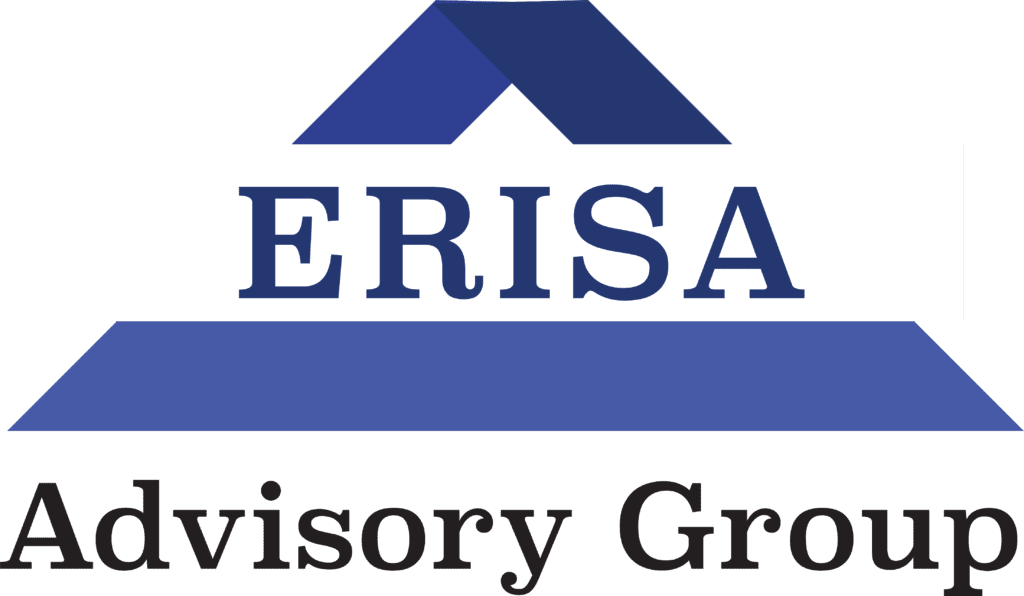ERISA Insider Vol II., Ed. IX: What is a Fiduciary Under ERISA?
Understanding who is a fiduciary is the first step to keeping your plan ERISA compliant.
Dear Employer,
The term ‘fiduciary’ has different meanings in different business contexts. When it comes to ERISA Health & Welfare or Qualified Retirement Plans, knowing who is considered a fiduciary, and what their obligations are, is essential for plan compliance.
Every year the Employee Benefit Security Administration (EBSA) audits dozens of ERISA plans, large and small. When this happens, plan fiduciaries are ultimately responsible for answering for decisions made while administering the plan, and how service providers were paid using plan assets. If legal compliance problems are found during this process, these individuals may be held liable for paying any potential fines or penalties to restore losses to the plan, as well as an excise tax to the Department of Labor and/or IRS.
Many companies are unaware of who exactly holds these responsibilities, and often misinterpret who is actually a fiduciary.
In this newsletter, we will clearly define who is considered a fiduciary under ERISA and what that obligation means for your organization.
Let’s start by defining exactly what a fiduciary is according to the law, so that you can determine who is responsible for keeping your plan legally compliant.
Definition of a Fiduciary Under ERISA
Under ERISA, a fiduciary is anyone who exercises any discretionary authority or discretionary control over the management of the Plan. I.e., anyone who exercises any authority or control with respect to management or disposition of the Plan’s assets.
This definition is important because it underscores the fact that an individual does not require a fiduciary ‘title’, such as 402(a) Named Fiduciary or 3(16) Fiduciary, to be considered a fiduciary under the law.
The US Department of Labor will determine who is a fiduciary based on whether or not they exercise any authority or control over the Plan’s assets. This commonly includes a CEO, CFO or Controller within the organization, even if they are not specifically named in the plan documents.
Aside from company executives, other employees within the organization or third-party service providers may be fiduciaries depending on their responsibilities and interactions with the Plan. The key way to determine who is a plan fiduciary in this regard can be further defined by assessing whether their activities are considered a “settlor act” or “fiduciary “act” according to the DOL.
Settlor Act vs. Fiduciary Act
The DOL classifies actions taken by individuals dealing with the Plan into 2 categories: settlor acts and fiduciary acts.
Settlor acts are ministerial tasks that deal with the plan, but do not involve control or management of plan assets. These include:
- Choosing the type of plan you offer employees, or the options provided in that plan
- Creating the plan documents outlining those options
- Amending a plan, including changing or eliminating plan options
- Requiring employee contributions to come into the plan
- Deciding to terminate a plan
Since these acts relate to the formation, rather than the management of plan assets, they are generally not considered fiduciary acts covered under Title I of ERISA (unless dealing with multi-employer plans).
Fiduciary acts specifically involve management and control over plan assets including but not limited paying service providers, making investment decisions and filing the Form 5500.
This distinction is important not only due to the level of liability associated with these acts, but also because of compensation.
Settlor expenses carried out by in-house employees are not allowed to be paid for out of plan assets. However, expenses associated with fiduciary decisions are considered an “allowable expense” and may be paid for out of plan assets.
IMPORTANT: All Plan Fiduciaries Share Co-Liability
Before discussing the various fiduciary titles under ERISA, it is important to note that all individuals tasked with making fiduciary decisions for the plan share co-liability with the plan sponsor.
As a plan fiduciary, you may delegate tasks to other fiduciaries who are expert in a particular area. However, part of your fiduciary responsibility requires you to prudently select the best person to complete such a task. This is also known as the ‘Prudent Person Rule’.
If the DOL audits your plan, you will be responsible, as a prudent person, for justifying why you selected a specific fiduciary to complete a certain task. Additionally, the DOL expects that you monitor the activities of that fiduciary to make sure the task is being carried out properly.
Key Fiduciary Titles
As outlined above, you may appoint employees within your organization or hire outside service providers to carry out fiduciary acts for the plan and share co-liability with the plan sponsor and other plan fiduciaries.
Here are some of the key fiduciary titles you may appoint:
3(16) Fiduciary – responsible for managing day-to-day administrative work for the plan. This can consist of filing paperwork with the relevant government agencies to maintain ongoing communications between employees and service providers working on the plan.
The highest level of 3(16) Plan Administration occurs when the service provider acts as the plan sponsor, and shares fiduciary liability and action items the plan sponsor would normally take on when administering the plan.
3(21) Investment Advisor – a paid professional who provides investment recommendations to the plan sponsor or trustee. The plan sponsor or trustee retains ultimate decision-making authority for the investments and may accept or reject the recommendations.
3(38) Investment Manager – a codified investment fiduciary responsible for selecting, managing, monitoring and benchmarking the investment offerings of the plan. This fiduciary assumes liability for investment decisions, partially relieving the plan sponsor or trustee of this liability.
Note: Not all fiduciaries will fall under one of these titles. Any individual who exercises authority or control over plan assets, regardless of their official title (or lack thereof), is considered a fiduciary under ERISA and is responsible for plan compliance.
If you choose to hire an outside service provider to fulfill any of these fiduciary roles, please remember that they will share co-liability with other fiduciaries and can never relieve you of 100% of your fiduciary liability.
Are Service Providers Considered Fiduciaries?
In most cases, service providers such as Third Party Administrators (TPAs) are not considered fiduciaries. Many TPA firms will provide services that count as settlor acts [as discussed above] to assist with the formation of the plan, but will not take on any fiduciary responsibility that comes with making decisions involving plan assets.
It is important to keep this in mind when selecting these service providers because the liability for making decisions that result in using plan assets, including paying for these services, will ultimately fall back on plan fiduciaries.
Service providers that offer independent fiduciary services such as acting as a plan trustee or 3(16) Plan Administrator, do however, share fiduciary responsibility with the plan sponsor and trustees and are considered fiduciaries under ERISA.
Work With An ERISA Independent Fiduciary Who Will Share Liability For Your Plan
At the ERISA Advisory Group, we provide independent fiduciary services that share liability with your plan sponsor and in-house fiduciaries.
This includes everything from acting as the 3(16) Plan Administrator to serving as a Trustee, which requires us to share equal fiduciary liability with your plan sponsor.
While no one can relieve you of 100% of liability, our over 25 years of experience working with ERISA plans has provided our fiduciaries with the confidence and expertise necessary to share the burden of legal compliance for your plan.
If you need an ERISA independent fiduciary to assist you in this area, please schedule a free consultation with us and we will see if we can help you.
Book A Free ERISA Compliance Consultation Today
About The ERISA Advisory Group: Our founder and president, William Kropkof, CEBS, worked for the DOL as an investigator of ERISA plans for 7 years before becoming an independent fiduciary. Since 1995, we have been helping plan sponsors and fiduciaries from organizations large and small develop a strong plan strategy with an emphasis on ERISA compliance. We have decades of experience working with PEOs, Trade Associations, Unions and Single Employer Plans. In addition, our fiduciaries have been called to serve as expert witnesses in court cases involving ERISA compliance findings, both civil and criminal.
In addition to offering independent fiduciary services to businesses, we also offer training programs for fiduciaries who wish to become experts in ERISA compliance for their own plans.

